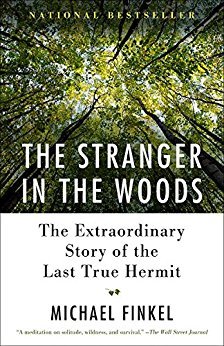More on this book
Community
Kindle Notes & Highlights
Read between
November 22, 2017 - April 9, 2019
Knight clearly loved to read. He stole, according to news reports, a lot of science fiction and spy novels and best sellers and even Harlequin romances—whatever was available in the cabins of North Pond—but one person also lost a finance textbook, a scholarly World War II tome, and James Joyce’s Ulysses.
One’s desire to be alone, biologists have found, is partially genetic and to some degree measurable. If you have low levels of the pituitary peptide oxytocin—sometimes called the master chemical of sociability—and high quantities of the hormone vasopressin, which may suppress your need for affection, you tend to require fewer interpersonal relationships.
after passing time in quiet, rural settings, subjects were calmer and more perceptive, less depressed and anxious, with improved cognition and a stronger memory. Time amid the silence of nature, in other words, makes you smarter.
“Suffering is the sole origin of consciousness.” Jill Hooley, the Harvard psychology professor who felt that Knight’s behavior displayed characteristics of schizoid personality disorder, observed that torment was the price Knight paid in order to remain in the woods.
“The more you realize, the more you realize there is nothing to realize,” she said. “The idea that there’s somewhere we have got to get to, and something we have to attain, is our basic delusion.”


